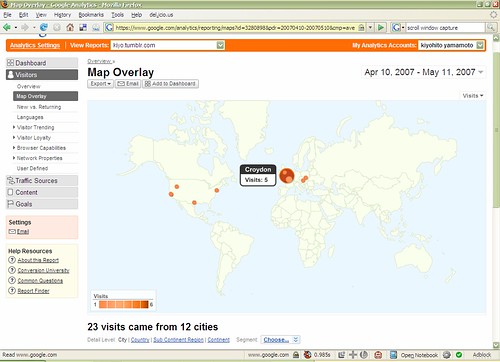Striking a balance between originality and affordability is the biggest challenge companies face when crafting marketing campaigns. Recycling ads and promotions can be a great way to save money and make the most of limited resources but consumers are quickly numbed to repetitive marketing material, and the more familiar a company’s content is the less likely it is to capture and hold attention.
On top of this, people are nowadays most attracted to information that is relevant to their current situations, needs, and desires, yet because marketers can never appeal directly to the shifting day-to-day mental landscape of their audiences, they must make the most of trends and pattern which is why seasonal marketing is such an essential tool for businesses of all shapes and sizes.
Here’s how you can craft a productive and cost-effective seasonal marketing strategy:
Timing is Everything
Marketing success is about putting your brand in the right place at the right time, the difficult part is predicting where and when that is. The only way to do so is to work hard at identifying seasonal trends that link with your business strategy and ethos, and when we use the term ‘seasonal,’ we mean it in the broadest sense to indicate events that happen regularly year after year. So, seasonal marketing strategies can apply to the four seasons just as aptly as they can to holidays, weather patterns, celestial events, important birthdays, sports seasons, and anniversaries.
We all understand how and why Irish pubs make the most of St. Patrick’s Day for example, but there are endless other options: telescope sellers can educate audiences about annual lunar events, flower sellers can fuel excitement about interesting monthly blooms, even video game makers can poise themselves to sell more during the cold spells when people spend more time indoors.
Recently, the European Commission Eurostat released data information on the tourism industry, the report on “seasonality in the tourist accommodation sector” showed that July and August accounted for a third of all annual nights spent in the EU and as we are already aware of July through to September were the peak season, however visitor behavior fluctuated. So, when thinking about seasonal marketing you need to take into account all these statistics and time marketing campaigns around this.
If the peaks are in August through to September then planning should have begun in the first quarter of the year and implementation of campaigns should be circulated around May/June to take effect in August and draw in last minute deals. There is a range of ways that the hotel and accommodation sector can market their deals seasonally – take inspiration from the Vouchercloud hotel discount offerings:
1- Special offers with email/newsletter sign-ups (traditional marketing)
2- Special offers with Facebook likes (social media marketing)
3- Up to 50% off top destinations with the deal of the day (consistent seasonal marketing)
Capitalize On Holidays
As we have just seen timing is everything and holidays are an excuse to break the ordinary routine. This means that consumers are far more likely to spend their money in special ways, and are thus more susceptible to promotions and events.
When our favorite holiday events arrive, we want to mark the occasion and are always looking for excuses to do so. Learn from the examples of companies like Hallmark and Godiva chocolate, who have inextricably linked their products with Valentine’s Day through years of dedicated promotion.
Put quality content in front of audiences who are excited about an upcoming date, and you will make them excited about your business. If you keep a holiday theme running throughout the year it will keep in the mind of the consumer – this can easily be done through social media promotions on Twitter. For example, Christmas may be on the 25th December but why not monthly create a countdown to the next Christmas from January – build up your brand and become memorable through simple marketing tactics.
Take inspiration from past marketing campaigns. In 2012, Cadbury’s crème eggs used a seasonal gaming event to launch a product campaign that went viral. Cadbury’s utilized the social media network of Facebook and the Olympics to build a game to engage with their consumer base. “Goo Games” through user-generated activity then made consumers go out and buy the product.
Fans were drawn to the brand through social activity as they were able to choose from several games to play including ‘Pole Yolk,’ ‘Goodles’ and ‘Triple Bump,’ and then they were rewarded with virtual medals as well as reality prizes. In addition, on bus stops around the UK Cadbury’s enabled an interactive game to play while you wait – “Splat the Egg” stopped and distracted people’s attention. This type of seasonal and rewarding marketing is important when fishing customers in and retaining them for future product launches.
Utilize The Weather
Our moods, habits, and interests are enormously influenced by the weather so businesses have unique opportunities to capture attention by releasing content that relates to the recent snowstorms or heat waves, for example, that everyone is already talking about. Best of all, these patterns keep content relevant, yet can be repeatedly recycled throughout the years.
Analyze And Adapt

Marketing is a long-term investment that only pays off when businesses dedicate themselves to refining their campaigns. This requires equal parts creativity, demographic research, and data analysis. It is not enough to find out what works; companies must also understand when it works and which audiences it works best in front of.
Never approach a marketing campaign without a strategy for monitoring the profit it brings and the level of engagement it inspires. Great marketing does not merely communicate to consumers; it starts a conversation with them. Use your inside analytics on consumer behavior to design your seasonal marketing. If you are more targeted the more successful you shall be.
Remember, adapting to the shifting consumer landscape is crucial for businesses in every industry, whether selling directly to the public or working on a business-to-business basis.
Often, companies are surprised by the success they find by capturing opportunities that seemed unlikely to pay off in inordinate ways, so experimentation and contentious analysis of marketing campaigns is essential for not only building upon past successes but also identifying potential new windfalls, and you might be shocked to find that an obscure holiday or seasonal weather event presents a massive niche marketing opportunity. So, make the most of your resources, keep an eye on the calendar, and connect with consumers in ways that the competition cannot.






